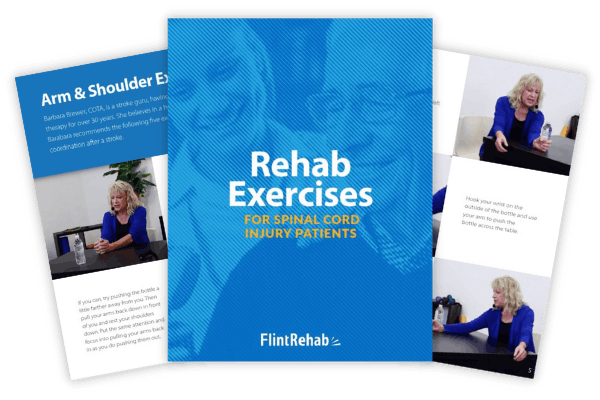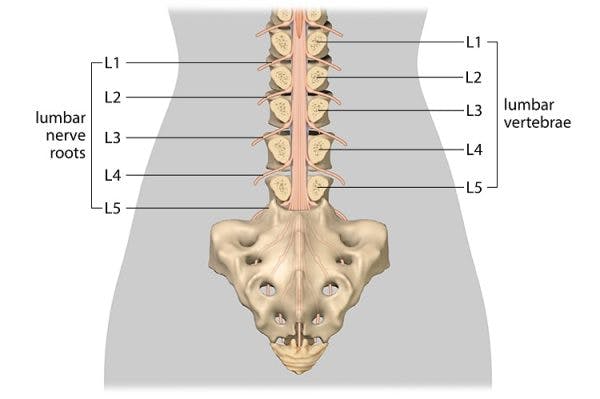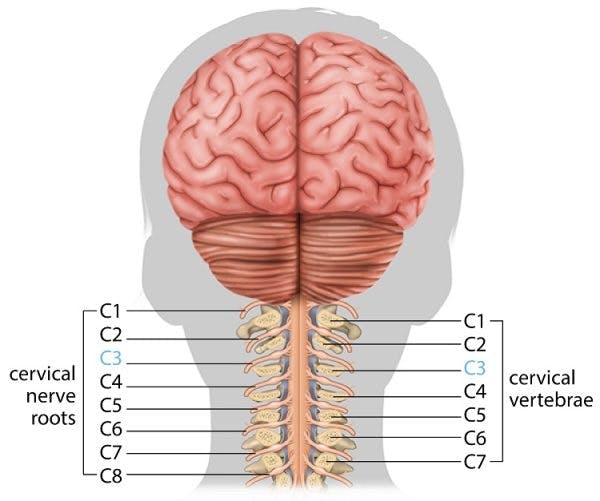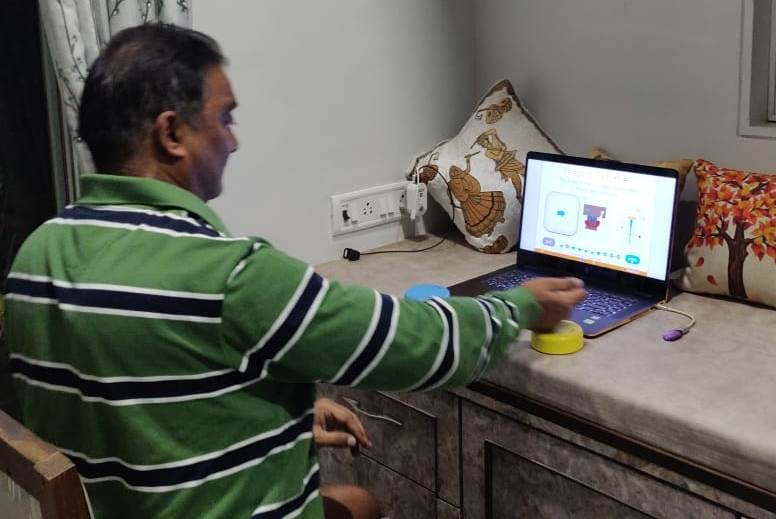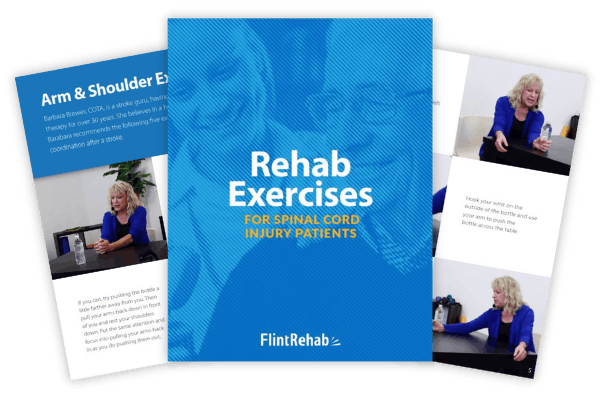Individuals may experience depression after spinal cord injury due to less functional independence, the development of secondary complications, and socioeconomic factors. However, it’s essential to understand that depression is not your fault and that there are things you can do to manage it.
To help you understand why depression occurs after spinal cord injury, this article will discuss common causes, symptoms, and treatments.
What Causes Depression After Spinal Cord Injury?
While it’s common to develop depression after spinal cord injury, it should not be expected. About 50.8% of individuals do not experience depression after spinal cord injury.
Amongst the other 49.2% of individuals that experience some form of depression, about 12.5% of individuals have chronic depression, 12.8% have delayed depression, and 23.9% experience depression that improves over time.
Many factors can contribute to the development of depression after spinal cord injury. For one, a spinal cord injury can require drastic changes in lifestyle due to motor impairments and loss of sensation. As a result, individuals may become less independent, which can affect their ability to perform everyday activities and care for themselves.
Other factors that may contribute to depression include:
- Chronic pain
- Medication side effects
- Socioeconomic factors (i.e., income, occupation, education, etc.)
- Lack of physical activity
It’s also important to understand that depression is not always a direct result of spinal cord injury. Some individuals have a prior history of depression or other mental illnesses. It may become more severe after SCI, but it is not necessarily caused by the SCI.
Anyone can get depression at any point in their life. It can last for short or long periods and vary in severity. However, even mild forms of depression can be harmful and should be addressed.
In the following section, we’ll discuss common symptoms of depression.
Symptoms of Depression After Spinal Cord Injury
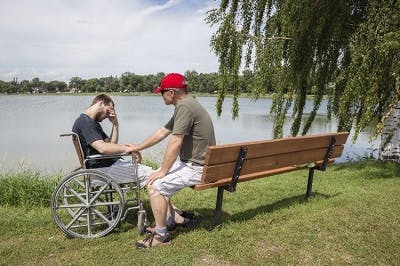
While depression is a mental illness, it can also affect your physical health, quality of life, and relationships with others.
Symptoms of depression after spinal cord injury include:
- Lack of interest/ motivation
- Difficulties concentrating
- Loss of appetite or overeating
- Excessive guilt/ self-blame
- Low energy/ fatigue
- Trouble falling asleep, staying asleep, or sleeping too much
- Thoughts of death or suicide
If you think you might have depression, know that there are lots of ways to get help. In the following section, we’ll discuss various treatments that can help you manage depression after spinal cord injury.
How to Treat Depression After Spinal Cord Injury
Because everyone can experience depression differently, a personalized approach to treatment is ideal. What works for one person won’t necessarily work for another, so you may have to undergo a little trial and error to find the best treatment for you.
It’s also important to understand that depression is not your fault and that there are ways to help you manage it to improve your quality of life. Understand that you’re not alone and that there are many resources available to help guide you through this journey.
Psychotherapy
Psychotherapy can be an extremely effective form of treatment for depression.
Psychotherapists are trained to listen to your problems, guide your thoughts, and provide resources that can help.
It helps you understand why you’re feeling depressed and that your feelings are valid. Once you can identify the underlying problems, a psychotherapist can suggest ways to cope.
Cognitive Behavioral Therapy

Cognitive behavioral therapy is a type of psychotherapy that focuses on why you think a certain way, how it affects your behavior, and promoting alternative ways of thinking.
By learning to recognize patterns in your thinking and how it affects your behavior, you can make a more conscious effort to change your thoughts, negative emotions, and behavior to cope with life after spinal cord injury.
Exercise
There are many benefits of exercise including improved mood, energy, and sleep, which makes it ideal for helping people deal with depression.
Spinal cord injury may limit your mobility, but it shouldn’t stop you from exercising the parts of your body that you can control.
When you exercise, your brain releases various chemicals that can alter mood, energy, and thinking, including:
- Serotonin is essential for mood regulation, deep sleep, and a healthy appetite
- Norepinephrine can help boost focus and alertness
- Endorphins canmake you feel good and help relieve pain
- Dopamine plays a significant role in your perception of reward and motivation
Moreover, exercise does not have to be intensive to be effective. A quick stroll around the neighborhood with a friend or practicing simple exercises from your wheelchair can be very beneficial.
If you have severe paralysis, practicing passive range of motion exercises can help! Passive range of motion exercises don’t require active movement. Rather, a therapist or caregiver will move the patient’s body for them, which helps promote better circulation and stimulates the central nervous system.
Diet
What you eat matters and can significantly affect how you feel.
This analysis of 21 studies found that consuming a diet high in fruit, vegetables, whole grains, fish, olive oil, low-fat dairy, and antioxidants and low intakes of animal foods was associated with a decreased risk of depression.
Likewise, a diet high in red and/or processed meat, refined grains, sweets, high-fat dairy products, butter, potatoes, and high-fat gravy, and low intakes of fruits and vegetables was associated with an increased risk of depression.
Focusing on consuming natural, unprocessed foods can help prevent complications like high blood pressure, diabetes, and obesity.
Individuals may also benefit from reduced alcohol consumption. Alcohol depresses the central nervous system, which can cause lapses of judgment, impaired motor skills, and emotional instability.
A little bit of indulgence every once in a while is okay and even healthy for your sanity, but don’t get carried away. Practice everything in moderation.
Antidepressants
Antidepressants can inhibit and promote various neurotransmitters in the brain that affect your mood, energy, and pain perception.
It’s important to understand that antidepressants can take several weeks to take full effect. So before you decide antidepressants are not working, it’s ideal to wait a few weeks for them to fully kick in.
Additionally, be sure to notify your doctor of all the other medications you’re currently taking before starting any new medication. Some medications may not mix well together and can cause harmful side effects.
Depression After Spinal Cord Injury: Key Points
While depression can develop after spinal cord injury, it’s essential to understand that help is available and you are not alone. Many individuals with SCI learn to be resilient and live purposefully again.
By identifying signs of depression and taking the initiative to seek help, you can significantly improve your quality of life.
We hope this article helped you understand why depression occurs after spinal cord injury and how to manage it.



